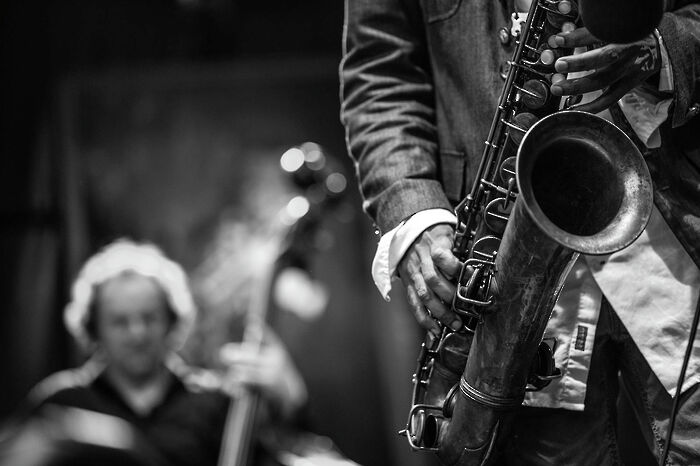The Lenten origins of the Oratario
As we approach Easter, William Poulos discusses the power of musical storytelling during a time of theological reflection

As Lent is an important event on the Christian calendar, I expected to hear some music commemorating it, but no concerts in Cambridge seemed to be doing so. I heard a magnificent but secular programme including Mahler and Bruch, and on Sunday I heard pieces from Pergolesi and Bach which were written for religious reasons but not to commemorate Lent or Easter. Surveying my record collection rather than the concert calendar, I noticed that I couldn’t recall any piece of music written specifically for Lent. I soon discovered, however, that one musical form would have been impossible without it: the oratorio.
Traditionally, theatres and opera houses were closed during Lent. To counter this, in 1556 Philip Neri (now St Philip Neri) began to introduce elements of mystery plays into his popular services, which he held in Rome at the Oratory of the Most Holy Crucifix. By about 1600 a musical form emerged there and was named after its venue: the oratorio. Like opera, which was emerging at about the same time in Florence, the oratorio combined plot, music, and vocal statements, and advanced its plots through recitatives and arias, but unlike opera the singers didn’t move. The form became popular during the 17th century thanks to composers such as Schütz in Germany and Carissimi in Italy, who wrote oratorios in Latin based on biblical narratives specifically to provide a form of entertainment during Lent.
“The oratorio, a form developed to fill the gap left by the suspension of theatres and opera houses during Lent, became not an expression of piety or penance but of nationalism”
In 1730s England, Handel had almost gone broke while trying to make it in the cutthroat opera business. Having visited Rome and written a Roman oratorio twenty years earlier, he put on his mercantile wig and realised he could make money writing oratorios for an English audience who lacked the entertainment of theatre and opera during Lent. His oratorios – probably the first in Britain – were in a style like Carissimi’s but differed in that the libretti were in English, not Latin. They became hugely popular, spreading from London throughout the country and were performed long after his death. They are still regularly performed today, and the oratorio Messiah is considered a model of the form.
The cause of the initial popularity, however, was not entirely musical. Almost all of Handel’s oratorios are based on Old Testament figures such as Esther, Deborah, and Samson – heroes of God’s Chosen People, the collective and indomitable Israelites. The 18th-century Englanders, industrious, self-determined, and exulting in their economic supremacy, identified with the Israelites and considered themselves the Chosen People, a sentiment most famously expressed in William Blake’s Jerusalem. A letter from the London Daily Post in April 1739, describing the premiere of Handel’s Israel in Egypt, says that “Protestant, free, virtuous, united, Christian England, need little fear…the whole Force of slavish, bigoted, united, unchristian Popery.” Watching Handel’s oratorios, the English audience gratified itself by thinking that the music and fanfare was celebrating its triumph, rather than Israel’s.
So, while never entirely losing their religious meaning, Handel’s oratorios gained a patriotic one. The episcopal decree prohibiting the dramatic performance of biblical scenes on stage allowed for huge scenes that would have been impossible in opera, such as outdoor scenes with a grand chorus representing the “people of Israel”. Perhaps identifying with such an impressive spectacle – and one singing in English – contributed to the Englanders’ feelings of pride and patriotism. (Ironically, three of the choruses in Israel in Egypt are based on a serenata by Alessandro Stradella, a Roman composer whose work Handel had encountered in his youth.)
The oratorio, a form developed to fill the gap left by the suspension of theatres and opera houses during Lent, became not an expression of piety or penance but of nationalism. Some music scholars argue that Handel’s oratorios actually created nationalism, long before the concept engulfed Europe in the 19th century.
If, then, like me, you occasionally grumble at the pervasive secularisation of a supposedly Christian country, you can console yourself with the thought that it is not the result of modern commercialism or the popular “New Atheists”; it has been going on for a lot longer than that.
 News / Candidates clash over Chancellorship25 April 2025
News / Candidates clash over Chancellorship25 April 2025 News / Cambridge professor paid over $1 million for FBI intel since 199125 April 2025
News / Cambridge professor paid over $1 million for FBI intel since 199125 April 2025 Interviews / Dr Ally Louks on going viral for all the wrong reasons25 April 2025
Interviews / Dr Ally Louks on going viral for all the wrong reasons25 April 2025 Comment / Cambridge students are too opinionated 21 April 2025
Comment / Cambridge students are too opinionated 21 April 2025 Music / The pipes are calling: the life of a Cambridge Organ Scholar25 April 2025
Music / The pipes are calling: the life of a Cambridge Organ Scholar25 April 2025






